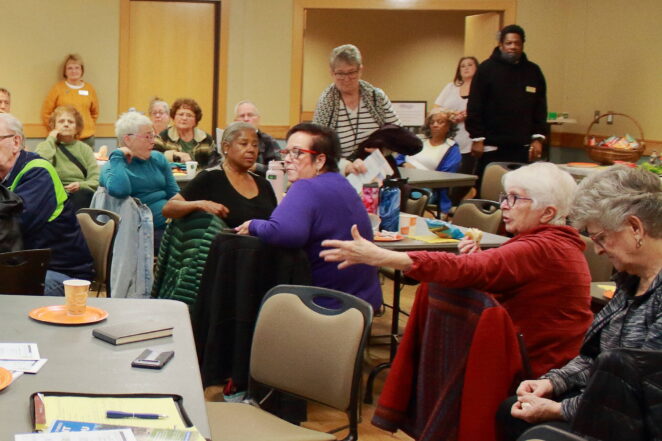As the aging adult population grows, exploring services that empower them to maintain their independence and enjoy a high quality of life is essential. Independence for seniors often means the ability to stay in their own homes, make decisions for themselves, and continue to participate in the activities they love.
Providing the right support and resources can significantly impact their ability to live autonomously. This article will delve into various services designed to help aging adults sustain their independence and thrive in their later years.
Key Points:
- Seniors value independence for maintaining dignity and well-being.
- Supportive services address mobility, health, and social needs.
- Reliable transportation ensures access to appointments and community engagement.
- In-home care supports autonomy through tailored assistance.
- Personalized healthcare fosters comfort and responsive care.
Understanding the Importance of Independence for Aging Adults

For many seniors, independence is intrinsically linked to their dignity and self-esteem. It is often a key factor in their overall well-being and happiness. The autonomy to make daily choices provides a sense of control over their lives and helps them maintain their identity amid age-related changes and challenges.
Moreover, independence for aging adults can lead to better health outcomes. Research suggests that those in control of their lives may be more motivated to stay active, eat healthily, and engage in preventative health care. These behaviors are crucial for managing chronic conditions and prolonging quality of life.
However, maintaining independence can become more challenging as seniors face mobility issues, cognitive decline, or illness. This is where supportive services become critical. They can offer the necessary assistance while respecting the senior’s autonomy and preferences.
To aid in this aspect, services like personalized direct primary care services are redefining patient-centered healthcare. Seniors can now receive attentive and responsive medical care that aligns with their individual needs, all within the comfort and privacy of their own homes.
Transportation Services Empowering the Elderly to Navigate with Confidence
Access to reliable transportation is a cornerstone of independence for seniors. Many cannot attend appointments, socialize, or run errands without it. Fortunately, transportation services are specifically tailored for the elderly, designed to get them where they need to safely and comfortably.
These services consider the unique needs of seniors, offering assistance from door to door and ensuring vehicles are accessible for those with mobility aids. By removing the stress of driving, seniors can continue to engage with their communities and maintain their routines.
On-demand ride services and transport subsidies have also become popular, enabling seniors to travel conveniently without financial burden. This level of autonomy can drastically improve their quality of life and, in some cases, delay the transition to assisted living facilities.
For example, meal delivery services can further enhance autonomy by taking care of food shopping and meal preparation, which might otherwise limit a senior’s ability to live independently due to logistics or physical difficulty.
In-Home Care Options for Seniors Seeking Autonomy

One of the most sought-after supports for seniors is in-home care. In-home caregivers can assist with various activities, from daily domestic tasks to personal care. This type of support is practical and allows seniors to stay in their familiar environment where they feel most comfortable and secure.
In-home care services can be customized to fit each senior’s unique needs, whether a few hours of help each week or round-the-clock assistance. This flexibility helps seniors manage their health and household without compromising their independence or burdening their families.
In-home care professionals are trained to foster a respectful and empowering atmosphere. They encourage seniors to do as much as they safely can on their own, stepping in only when necessary. Such an approach promotes a sense of achievement and can boost confidence in the elderly.
Further support can come from specialized in-home health services that address the medical needs of seniors. These services can range from medication management to therapy sessions, offering holistic care catering to physical and mental wellness.
The Role of Technology in Fostering Senior Independence
Technological advancements are revolutionizing how seniors maintain their independence. From wearable health monitors to smart home systems, these tools offer practical solutions that enhance safety and convenience.
- Health monitoring devices ─ Wearables track vital signs and provide real-time data, enabling seniors to manage chronic conditions effectively.
- Smart home features ─ Automated lighting, voice-activated assistants, and safety sensors create a secure and comfortable living environment.
- Telehealth services ─ Virtual consultations reduce the need for travel and provide accessible medical support.
Incorporating technology allows seniors to manage their daily routines more efficiently while staying connected with caregivers and loved ones.
Social Engagement Services That Build Community Connections

Social isolation can significantly affect seniors’ mental health and quality of life. Programs and services designed to promote community interaction help counter loneliness and foster meaningful relationships.
Community centers, senior clubs, and virtual social platforms offer opportunities for seniors to participate in group activities, workshops, and hobbies. These services can reignite a sense of purpose and belonging.
Volunteer programs also provide seniors with avenues to contribute their time and skills, enriching their lives and enhancing their community presence.
Financial Planning Services for a Secure Retirement
Financial stability is crucial for maintaining independence. Services offering financial planning guidance can help seniors manage expenses, prepare for healthcare costs, and explore benefits they may be eligible for.
Key recommendations include:
- Consulting financial advisors specializing in senior needs.
- Exploring government programs and subsidies for essential services.
- Utilizing tools to track expenses and plan budgets.
Proactive financial planning reduces stress and allows seniors to focus on enjoying their later years.

Wellness Programs to Promote Physical and Mental Health
Comprehensive wellness programs encourage seniors to stay active and engaged. These services combine physical exercise, mental stimulation, and relaxation techniques to support overall well-being.
Programs like yoga classes, art therapy, and memory care workshops are tailored to seniors’ needs, ensuring they remain energized and optimistic about their future.
Altogether, services that support aging adults in maintaining their independence are essential for preserving their dignity, enhancing their quality of life, and promoting better health outcomes. By combining personalized care, reliable transportation, and in-home support, seniors can continue to thrive and enjoy their later years with autonomy and confidence.
Adding innovative technology, community engagement, financial planning, and wellness initiatives creates a holistic approach that empowers seniors to live fulfilling lives.



